Searching For- Healthy diet? Know [here] Healthy Diet Food By 9 Minutes only
Healthy Diet is the kind of food that a person, animal or community habitually eats for getting their Complete nutrition.
Dietary habits play a major role in the quality of life, health, and Longevity.
Healthy Diet concept will Share you by Healthy-myself to maintain or improves overall Health.
Contents
1. What is Healthy Diet?:
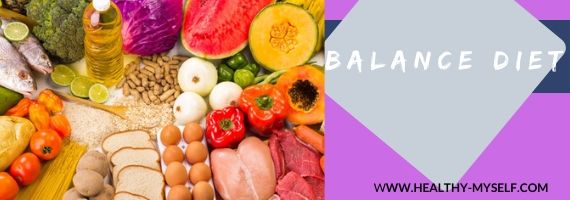
The kind of food which a person, animal or community habitually eats for their healthy survival.
Although for complete nutrition we requires ingestion and absorption of vitamins, minerals, essential amino acids from protein.
And essential fatty acids from fat-containing food.
Dietary habits play a major role in the quality of life health, and Longevity.
1.1.Healthy Diet Quality-
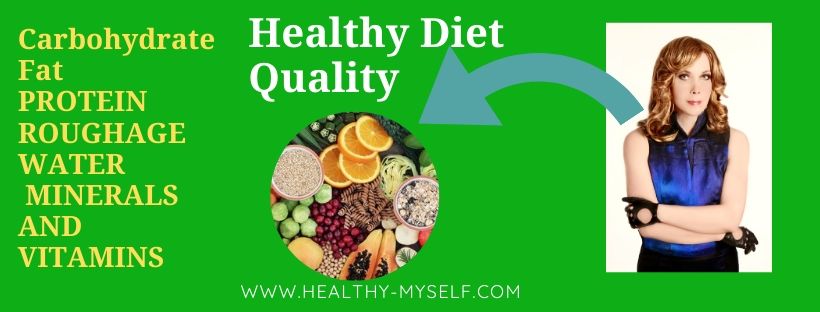
Our Healthy Diet should be
with Carbohydrate, Fat, PROTEIN, ROUGHAGE, WATER, MINERALS, AND
VITAMINS.
It fulfills our daily
requirements of CARBOHYDRATE, FAT, PROTEIN, VITAMIN, AND MINERALS.
Red meat should not be taken,
we should avoid refining oils, spices, stimulates foods like tea, coffee
and tobacco, and intoxicants.
One should not take food
while in tension or go to sleep at night, after taking meals to go for a
walk especially at night.
2. A HEALTHY DIET FOR GOOD HEALTH :
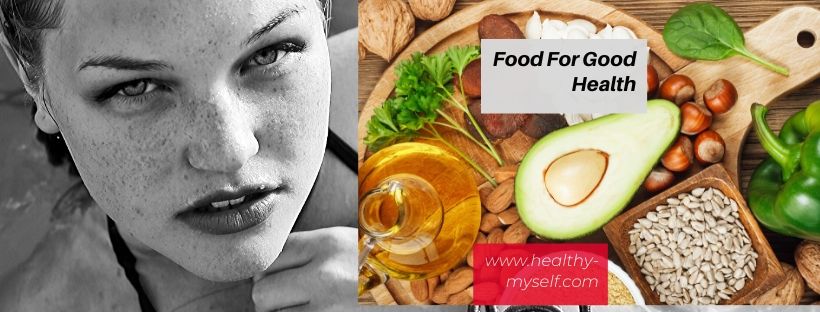
Importance of food in our daily life Every human being
needs foods or nutrients and it is required for Growth, Development, and
regular routine work.
Nutrient gives us energy and by this Vital Energy, the
the body runs and promotes health and prevents disease.
Without food, our body’s nourishment will be disturbed.
Food is a composition of CARBOHYDRATES, FATS, VITAMINS, PROTEINS,
MINERALS, AND WATER.
Eating a healthy and balanced diet is an important ingradient of
maintaining good health.
This can help you feel better.
This means that eating a wide variety of nutrients in the right proportions.
And consuming the proper amount of food and also drink to achieve healthy body weight.
This page covers Healthy Diet advice for people who don’t have specific dietary requirements as a result of having a condition like diabetes.
2.1.The basic principles of Healthy Diets-
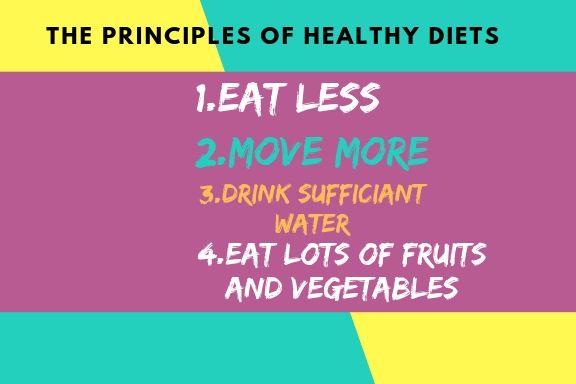
They are so simple that I can summarize them in just ten words-
- eat less
- move more
- eat lots of fruits and vegetables.
- For additional clarification,
- a five-word modifier helps
- go easy on Follow these precepts
And you have to go a long way toward preventing the major diseases.
Such as-coronary heart disease, certain cancers, diabetes,stroke, osteoporosis, and a host of others…
Although you may feel about nutrition is constantly changing and follow the rule of a balanced diet.
And they leave plenty of room for enjoying the pleasures of foods.
3.CARBOHYDRATE FOODS:
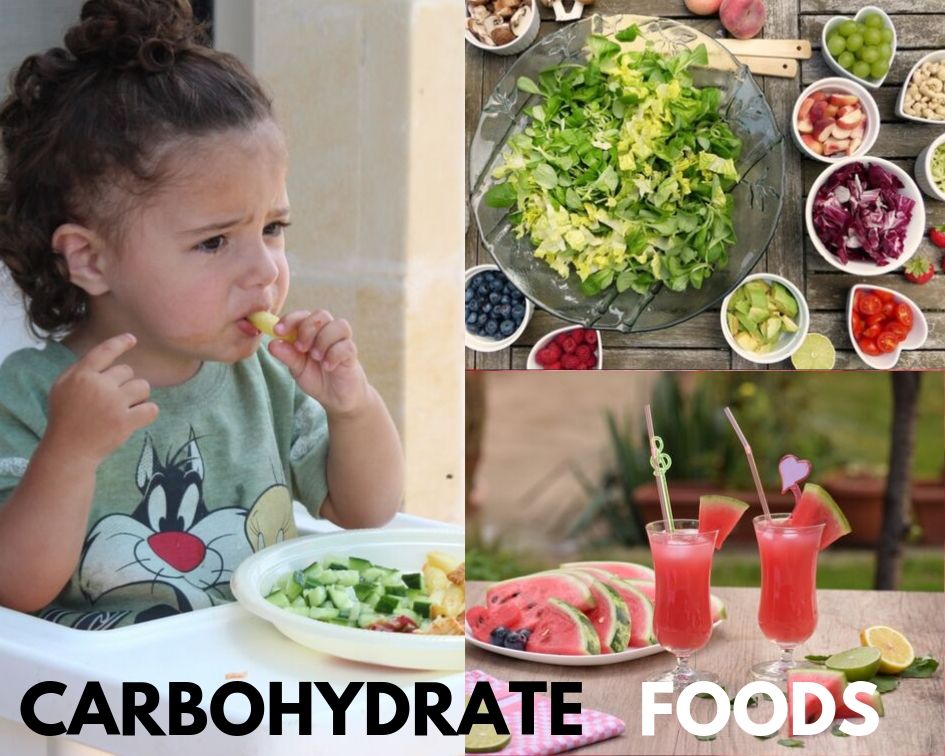
Carbohydrates are compounds of Carbon, Hydrogen, and Oxygen.
These elements provide us both heat and energy.
The main Carbohydrates in our food are Starch and Sugar.
Our body burns Carbohydrates all the time so that heat and energy are produced.
A person required 150-250 gms of carbohydrates per day.
If we take more than required it is converted to glycogen or fat and stored in our body after digestion of food.
Conversion of starch and sugar into glycogen and fat is done “LIVER RECONVERSION” of glycogen and fat.
so that heat and energy are produced, is also done by the liver.
Therefore, the Liver is put to great strain if we do not eat a Balance diet.
The daily requirement of Carbohydrate:
The daily requirement of Carbohydrate is about
150 to 250 gms.
4.Carbohydrate Structure :
Carbohydrate monomers, short chains, and polymers provide important cellular functions to maintain our life.
The number and type of Monosaccharide used, as well as the position of the bond between them.
It determines the three-dimensional structure of each carbohydrate.
By recognizing the structural & functional differences between common carbohydrate monomers and polymers.
Cells build carbohydrate polymers by using energy to form the bonds between Monosaccharides.
A dehydration synthesis reaction forms between carbon and two Monosaccharides.
After sandwiching an oxygen atom between them to releasing a water molecule.
A disaccharide forms when two monomers are joined.
Sucrose -table sugar:
It is made by joining two specific monomers, glucose and fructose.
Different monosaccharide pairs produce many of the common disaccharide sugars.
We associate with food, including sucrose, maltose (malt sugar, two glucose monomers) and lactose (milk sugar, glucose and galactose monomers).
Carbohydrate chains are extended by additional dehydration synthesis reactions and adding one monomer at a time to a growing chain.
Short chains called oligosaccharides are frequently attached to lipids.
And with proteins.
This carbohydrate -tags support in immune system functions.
Participate in cell communication.
And help to attach cells for extracellular surfaces and also other cells.
Carbohydrate chains having hundreds or more than that monosaccharide units are called polysaccharides.
Unlike shorter chains, just see that carbohydrate polymers are often composed of a single type of monosaccharide unit.
Differences in the structure and function of these polymers arise mainly from differences in the glycosidic linkage.
Rather than the presence of different monosaccharides.
Glycosidic linkages involve covalent bonds and from one carbon atom in each monosaccharide to a single oxygen atom between them.
However, which carbon atoms participate in this covalent bond mechanism may be different in each carbohydrate molecule.
5.FATS:
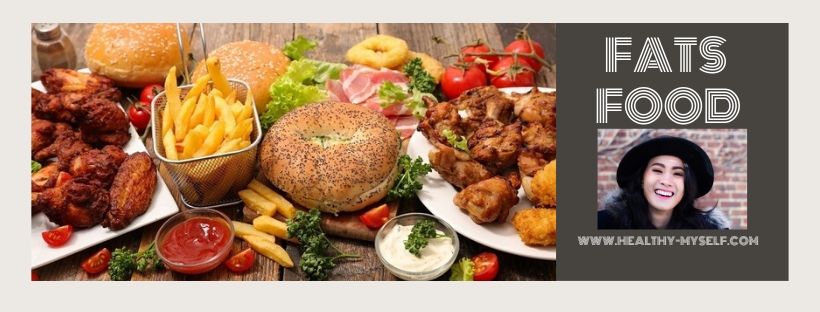
It’s a major source of energy for providing lubrication of various types of cells, muscle movement.
They help to absorb some vitamins and minerals.
Fat is essential for blood clotting, muscle movement, long term health and energy storage.
There are two kinds of fats:
1. Animal Fat .- milk, curd, cheese, and ghee, etc.
2. Vegetable Fats -Sesamum, mustard oil, soybean.
Olive oil, walnut oil, almond oil, etc and all kinds of oils and cakes.
All fats and oils are rich in fats.
Persons who are overweight should avoid saturated fats.
You should avoid cream, butter, ghee.
They should take tonnes of milk and its products instead of whole milk and its products.
Those who are doing hard physical work like laborers or army men should take fats to fulfill their requirements for energy.
If a person does not take enough fats, his body is not well proportioned and lacks beauty and shinning.
By taking too much fat also the body becomes too fat and ugly.
Besides, when the body has too much fat, organs like the heart.
And KIDNEYS have to work more and they become weekend.
6.DAILY REQUIREMENT OF FAT:
The daily requirement of fat is about 40 to 60
gms.
7.Fat-Soluble Vitamins:
https://healthy-myself.com//vitamin-b12-rich-foods/Small amounts of vitamins are required in the diet to enhance growth, reproduction, and health.
Fat-soluble vitamins will not dissolve in water.
After absorbing into the body, fat-soluble vitamins are stored in the fatty tissues and liver area.
The body can use these stores for future use.
The water-soluble vitamins are vitamins B and C.
There are four types of fat-soluble vitamins:
Each type of fat-soluble vitamin provides different functions in the body and tissue.
People deficient in the fat-soluble vitamins may require more supplements to boost their supply.
8.PROTEINS:
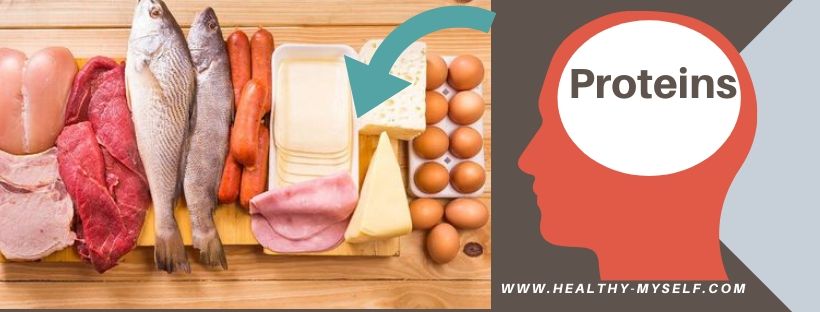
Proteins provide the building blocks needed for growth, repair, and maintenance of body tissues and organs.
They are composed of more than seventy amino acids.
For the assimilation of proteins, the body releases ENZYMES into the intestinal tract.
ENZYMES breaks down the protein into amino acids.
These amino acids are absorbed into our bloodstream.
They found in milk, almonds, coconut, soybeans, pulses, peas, and cereals.
Protein is made of OXYGEN, HYDROGEN, NITROGEN, CARBON, SULPHUR, AND PHOSPHOROUS.
BUT NITROGEN IS LARGEST COMPONENT OF PROTEIN.
This Protein is useful for growing children and pregnant women need more protein.
Though another nutritional constituent also required protein is very essential.
Protein increases mental strength.
Hemoglobin in the blood is made of Protein.
Too much or too little protein is harmful to the body.
When we are taking too little protein, the body will be less energetic and weak.
If we are taking so much protein i.e. red meat, egg, fish.
Then also the problem arises in the liver, kidney, and age is decreased.
DAILY REQUIREMENTS: 45 to 65 gms/day.
9.VITAMINS:
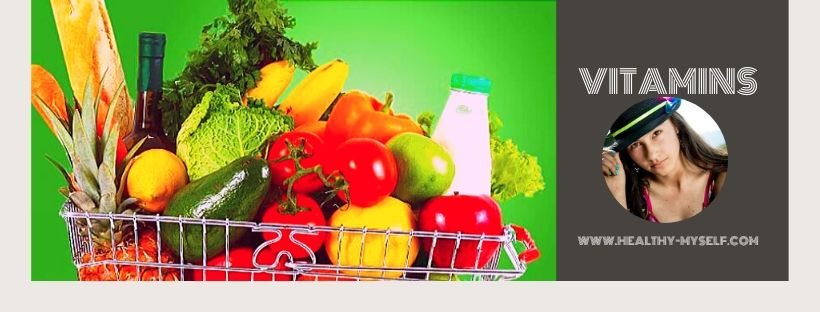
All Vitamins are useful for our body.
It helps in processing proteins, Carbohydrates, and Fats.
Vitamins are not produced by our body except Vitamin K.
And they are found in food.
They are chemical substances and are required in very small quantities.
Vitamins help in processing proteins, carbohydrates, and fats.
It creates energy, builds and replaces cells and they help in the prevention of disease.
Vitamins are like a spark.
Soybean, buttermilk ,fish ,eggs ,meat ,fruits,vegetables ,carrot , spinach etc.
SOME IMPORTANT VITAMINS WHICH NEEDED IN
OUR FOOD.
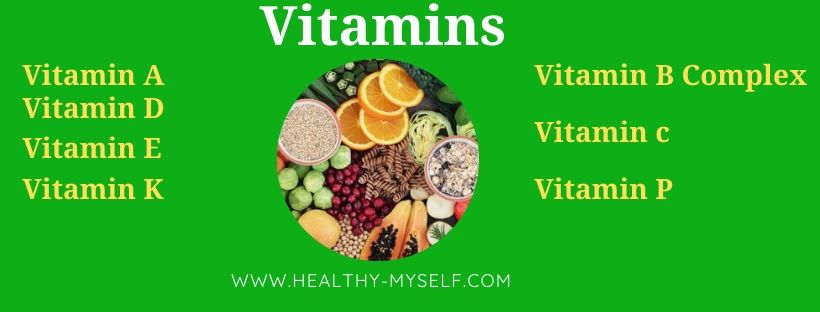
VITAMIN A
VITAMIN B1
VITAMIN B2
VITAMIN B3
VITAMIN B3
VITAMIN B4
VITAMIN B5
VITAMIN B6
VITAMIN B12
VITAMIN F
VITAMIN P
10.MINERAL SALTS:
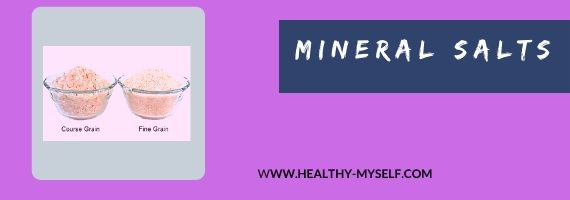
These salts are also known as -Purifying food.
In some vegetables, three is acetate salt.
Nature has given many minerals on earth which are very useful for life.
The fruits, vegetables, and cereals absorb these minerals in the form of their salts.
And when we eat them we also get these minerals in our body.
These minerals salts are soluble in water, we also throw away important minerals salts in it.
Minerals and trace elements are essential to health.
Calcium, magnesium, phosphorus, potassium, and sodium are five basic
minerals for our body.
Important trace elements are chromium, copper, zinc, iodine, iron, etc.
Other trace elements found in our body are sulfur, nickel, cobalt, and fluorine.
Oxygen, carbon, hydrogen, and nitrogen are also present.
The % of these minerals
in the body is as follow:
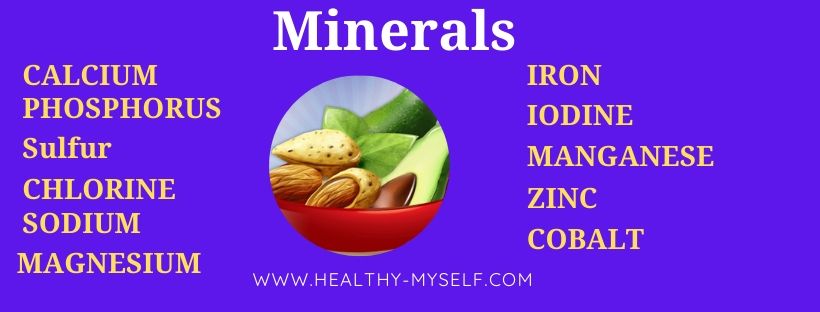
1. CALCIUM
22%
2. PHOSPHORUS
1%
3. POTASSIUM
0.35%
4. Sulfur 0.25%
5. CHLORINE
0.22%
6. SODIUM
0.15%
7. MAGNESIUM
0.5%
8. IRON
0.004%
9. IODINE
VERY SMALL
QUANTITY
10. MANGANESE
VERY SMALL QUANTITY
11. SILICON
VERY SMALL QUANTITY
12. ZINC
VERY SMALL QUANTITY
13. NICKEL
VERY SMALL
QUANTITY
14. BROMLEY
VERY SMALL QUANTITY
15. COBALT
VERY SMALL QUANTITY
Beside
the above salts, following four salts are found in our body, which enters
our body through nose and elements like protein, carbohydrates, and fats mixed in our food:
1.
OXYGEN
65%
2. CARBON
18%
3. HYDROGEN
10%
4. NITROGEN
3%
11. Conclusion:
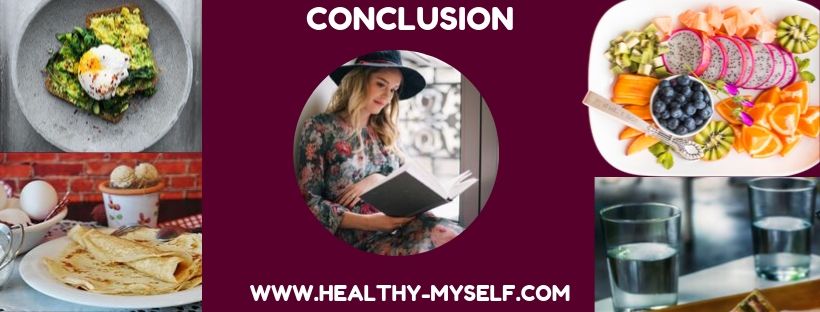
Take Diet as per nutrients quality, not quantity.
Balance Diet is the key to your health.
You can take this Mass Gainer also-

Always take green vegetables more to boost your Digestion System.
Take Fat As little as possible or as per standard specification.
Protein also to be taken less quantity.
Daily intake water 2.5 to 3.0 lit of fresh drinking water.
Take sleep 6 to 7 hrs daily.
You can read here also-
https://en.wikipedia.org/wiki/Healthy_diet
I’d like to grow my readership.
Can you help me out by sharing this blog post?
What am I missing here?
Let me know in the comments section and I’ll add it in later!

Hello there, I discovered your site by the use of Google whilst looking for a similar topic, your site got here up, it seems good. I’ve bookmarked it in my google bookmarks.
Hi, the Healthy Diet:Carbohydrate article it is well written and has helped me a lot.
Kiss you All!
Hi, the Healthy Diet:Carbohydrate article it is well written and has helped me a lot.